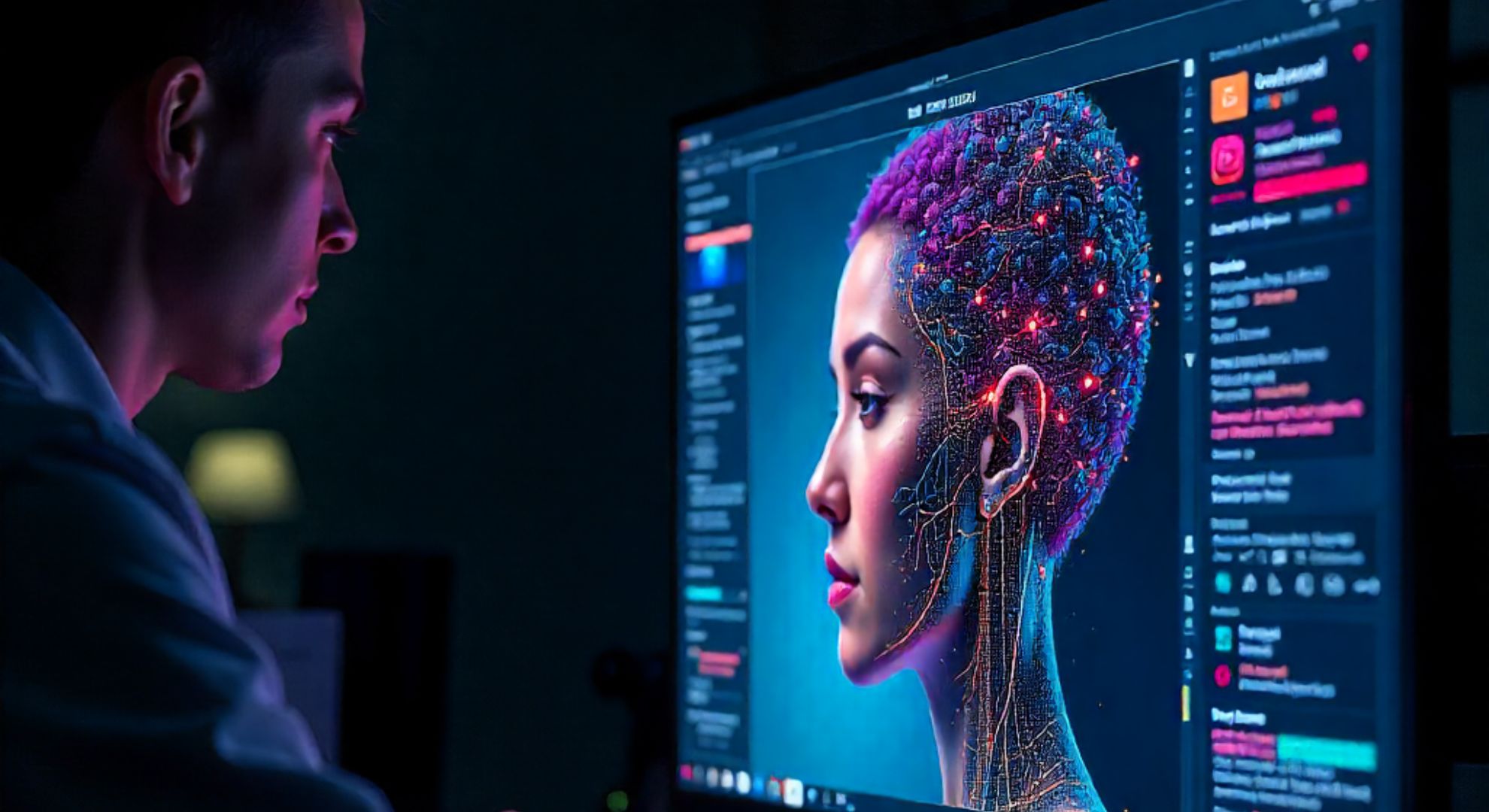When people hear the term AI empathy, it almost sounds like science fiction, right? Technology and feelings aren’t usually a natural mix. After all, empathy is something we connect with humans, not computers. But here we are in 2025, actually asking: Can ChatGPT and other AI tools really “get” how we feel?
Now, let me be clear, I use ChatGPT quite a lot. And every now and then, I catch myself thinking, “Wow, it actually understood my mood.” But then another part of me goes, “Hold on, it’s just predicting text, not actually feeling anything.”
And yet, the way it responds sometimes feels surprisingly human. That’s what makes this whole idea of digital empathy so fascinating, it blurs the line between machine and human interaction.
So where do we draw the line between real empathy and digital empathy? Let’s talk about it in simple terms.
What Is Empathy Anyway?
Empathy is really just understanding how someone feels and treating them with compassion. If a friend tells you they had a bad day, you don’t just say, “Noted.” You say something like, “I’m sorry you went through that, want to talk about it?”
Now, when ChatGPT or another AI says, “I’m sorry to hear that,” it sounds empathetic. But is it really feeling sorry? Of course not. It doesn’t have emotions. What it has is patterns. It has read millions of examples of human conversations and learned when and how to use those phrases.
So here’s the tricky part, it’s not empathy in the human sense. But it can create the experience of empathy. And sometimes, that’s enough for the person on the other side of the screen. Because in the end, what we often want is not perfect answers, but to feel like someone is listening. And if AI can give us even a little bit of that, it’s already doing something meaningful.
Why People Feel Heard by AI
You might wonder: if AI isn’t really feeling anything, why do people still feel comforted by it?
Here’s the simple answer, because the response feels timely, relevant, and human-like. Imagine you’re stressed at 2 AM and no friend is awake. You type your thoughts into ChatGPT, and it replies kindly, without judgment, without rushing you. In that moment, does it matter that it’s not “really” feeling for you? For many people, the answer is no.
And that’s exactly what people mean when they talk about digital empathy. It’s not about AI truly having emotions. It’s about AI being able to recognize the emotional tone in your words and respond in a way that makes you feel seen.
And honestly, sometimes that little bit of understanding is all we need to feel lighter. It doesn’t replace human connection, but it can fill the gap when no one else is around.

Where AI Empathy Helps
Let’s keep it simple, AI empathy works best in these areas:
- Customer service: Instead of robotic replies, you get responses that sound understanding.
- Mental health support (at a basic level): AI chatbots can check in on people, ask gentle questions, or provide resources.
- Everyday conversations: Even just talking to a tool that doesn’t judge can sometimes lighten your mood.
Now, I’m not saying AI should replace human connection (absolutely not!). But it can act like a bridge, a first layer of comfort, until you reach out to a real person. And sometimes, that little bridge is all someone needs to feel stronger before they take the next step.
It’s like knowing someone’s got your back, day or night.
But Here’s the Catch
The truth is, AI doesn’t “care.” It just mimics caring. That’s why we have to be careful. Over-relying on digital empathy could make us forget the importance of real, human-to-human conversations.
Think about it like this: AI empathy is like a mirror. It reflects what you show it. If you’re sad, it will give you language that fits sadness. If you’re happy, it reflects joy. But the mirror isn’t actually happy or sad, it’s just showing you what’s there.
My Personal Take
Here’s what I’ve noticed: the more I use ChatGPT, the more I appreciate the balance. I enjoy how it can understand context and respond with warmth. But I also remind myself, it’s not a friend, it’s a tool. A really smart tool, yes, but still a tool.
That said, I won’t lie, sometimes I do feel like I’m talking to something that “gets me.” And maybe that’s okay. Maybe the future of AI isn’t about whether it feels emotions, but whether it can help us feel a little less alone, a little more understood.
In the end, I think it’s less about what AI is and more about what it gives us, a moment of comfort, a nudge in the right direction, or even simply a listening ear, whether it’s a person or a tool, right when we need one.
The Future of AI Empathy
So, will AI ever truly feel emotions? Probably not. Emotions come from lived experiences, memories, biology, all the things machines don’t have. But AI will get better and better at simulating empathy. And in our busy, tech-driven world, that simulation might just be enough to make a difference.
Imagine classrooms where AI tutors encourage students not just with answers but with kind words. Imagine workplaces where AI assistants check in with employees, not just about deadlines but about how they’re doing. That’s the promise of AI empathy, it might not be real, but it could still be really helpful.
The Takeaway
At the end of the day, AI empathy isn’t about replacing human feelings, it’s about making technology feel a little more human. And if that helps someone feel heard, comforted, or supported, I think it’s a step in the right direction.
I really appreciate you taking the time to read what I’ve shared. I’ll come back again with more such insights and topics – until then, let’s keep questioning, exploring, and learning together.
It means a lot to share this space with you. And who knows, maybe our next chat will spark an even deeper conversation.
For more exciting blogs do visit us :- https://anekbedi.com/

